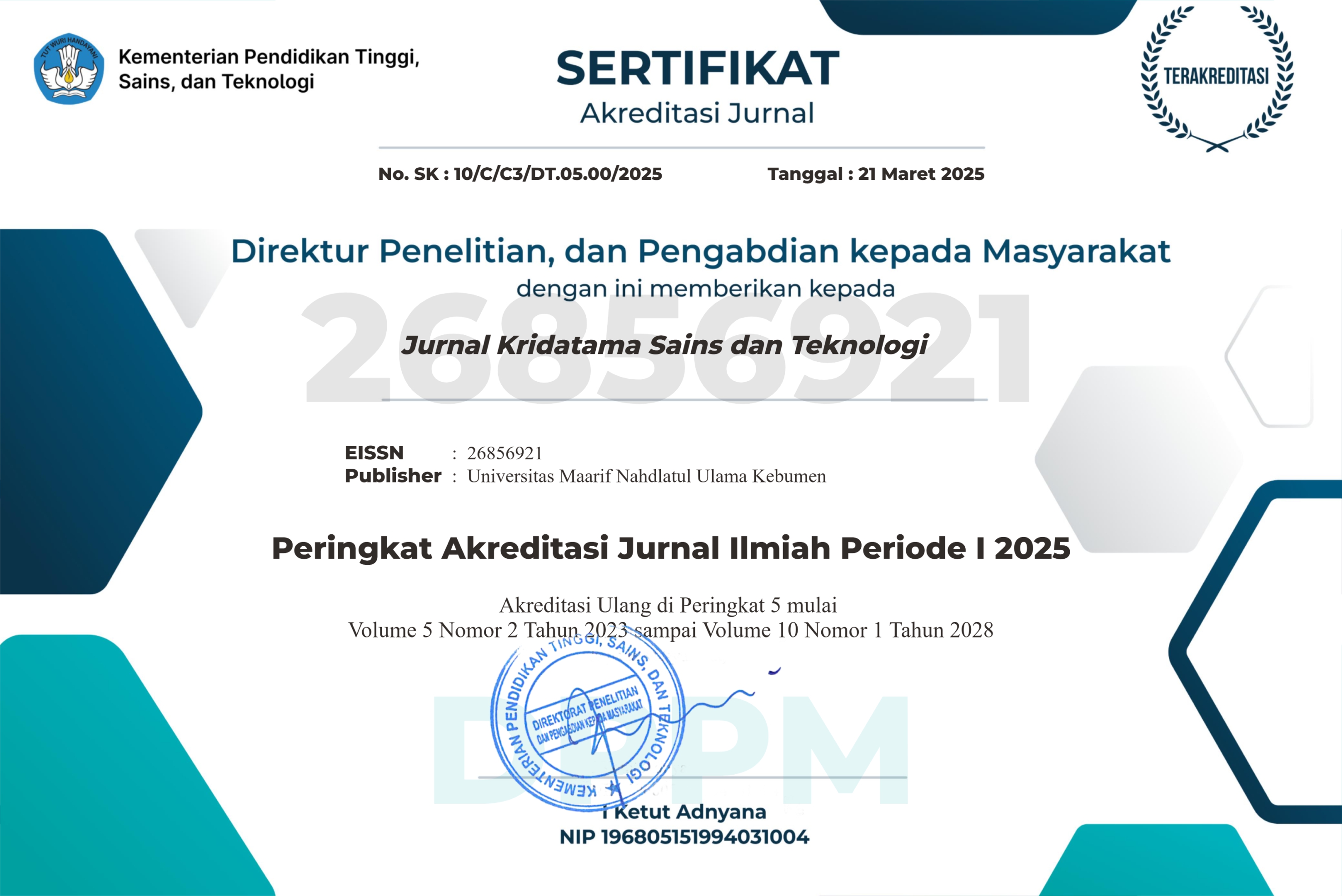Peran Pendidik PAUD dalam Pembentukan Karakter Anak Usia Dini di Era Teknologi Digital
DOI:
https://doi.org/10.53863/kst.v7i01.1514Keywords:
The role of early childhood educators, character development, early childhood, technology in education, impact of digital technologyAbstract
This study aims to analyze the role of educators in shaping the character of early childhood in the digital technology era in Tenggarong City. A qualitative descriptive approach was employed, with data collected through in-depth interviews and observations of early childhood educators who play a role in character formation. The findings indicate that educators can optimize the use of digital technology in a positive manner to support children's character development. Additionally, early childhood educators have responsibilities in character building, including serving as role models, providing supervision and guidance, and integrating character values into learning activities. Several key types of character development in early childhood were identified, including religious character, discipline and responsibility, social awareness and empathy, independence and creativity, as well as digital ethics. Collaboration with parents is also a crucial element in fostering children's character. Thus, this study seeks to identify and explore the roles that can be undertaken to build children's character through digital technology utilization. Alongside technological advancements, there are not only challenges but also opportunities, such as creating a supportive learning environment by leveraging technology creatively. This study concludes that educators play a key role in shaping the character of early childhood, particularly in addressing the challenges of the digital technology era. The implications of these findings emphasize the importance of establishing a supportive learning environment and integrating character values into education as a strategic approach to ensuring children's moral, ethical, and social development
References
Dyna Herlina, S., Setiawan, B., & Adikara, G. J. (n.d.). Digital Parenting. Mendidik Anak Di Era Digital.
Heriyanto, H. (2018). Thematic Analysis sebagai Metode Menganalisa Data untuk Penelitian Kualitatif. Anuva, 2(3), 317. https://doi.org/10.14710/anuva.2.3.317-324
Imanina, K. (2020). Penggunaan Metode Kualitatif Dengan Pendekatan Deskriptif Analitis Dalam Paud. Jurnal Ilmiah Kajian Ilmu Anak Dan Media Informasi PAUD, 5(229), 45–48. http://ejurnal.unisri.ac.id/index.php/jpaud/article/view/3728
Rantauwati, H. S. (2020). Kolaborasi Orang Tua Dan Guru Melalui Kubungortu Dalam Pembentukan Karakter Siswa Sd. Jurnal Ilmiah WUNY, 2(1), 116–130. https://doi.org/10.21831/jwuny.v2i1.30951
Ruchiyat, M. G., Kurniawan, M., Triyaningsih, T., Marwan, M., & Prihatmojo, A. (2024). Strategi Menumbuhkan Karakter Anak Melalui Teknologi Digital. Jurnal Inovasi Pendidikan Dan Teknologi Informasi (JIPTI), 5(1), 37–47.
Setiardi, D., & Mubarok, H. (2017). Keluarga sebagai sumber pendidikan karakter bagi anak. Tarbawi: Jurnal Pendidikan Islam, 14(2).
Universitas, P., Negeri, I., & Palu, D. (2023). PENGARUH TEKNOLOGI TERHADAP PENDIDIKAN KARAKTER PESERTA DIDIK DI ERA. 0, 323–328.
Downloads
Published
How to Cite
Issue
Section
License
Copyright (c) 2025 Sukma Erita, Witalia Witalia, Tifa Ramadanti

This work is licensed under a Creative Commons Attribution-ShareAlike 4.0 International License.
Authors retain copyright and grant the journal right of first publication with the work simultaneously licensed under a Creative Commons Attribution-ShareAlike 4.0 International License that allows others to share the work with an acknowledgment of the work’s authorship and initial publication in this journal

















